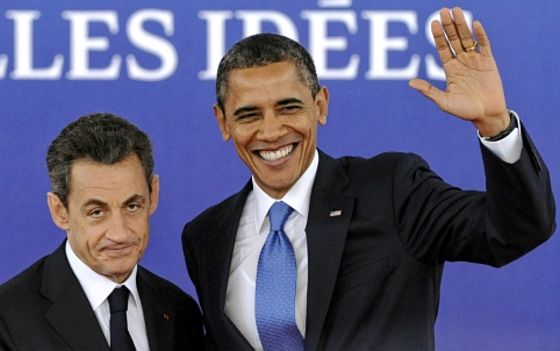The New York Times reports: With the United States facing the reality that its broad security partnership with Pakistan is over, American officials are seeking to salvage a more limited counterterrorism alliance that they acknowledge will complicate their ability to launch attacks against extremists and move supplies into Afghanistan.
The United States will be forced to restrict drone strikes, limit the number of its spies and soldiers on the ground and spend more to transport supplies through Pakistan to allied troops in Afghanistan, American and Pakistani officials said. United States aid to Pakistan will also be reduced sharply, they said.
“We’ve closed the chapter on the post-9/11 period,” said a senior United States official, who requested anonymity to avoid antagonizing Pakistani officials. “Pakistan has told us very clearly that they are re-evaluating the entire relationship.”
American officials say that the relationship will endure in some form, but that the contours will not be clear until Pakistan completes its wide-ranging review in the coming weeks.
The Obama administration got a taste of the new terms immediately after an American airstrike killed 26 Pakistani soldiers near the Afghan border last month. Pakistan closed the supply routes into Afghanistan, boycotted a conference in Germany on the future of Afghanistan and forced the United States to shut its drone operations at a base in southwestern Pakistan.
Mushahid Hussain Sayed, the secretary general of the Pakistan Muslim League-Q, an opposition political party, summed up the anger that he said many harbored: “We feel like the U.S. treats Pakistan like a rainy-day girlfriend.”
Whatever emerges will be a shadow of the sweeping strategic relationship that Richard C. Holbrooke, President Obama’s special envoy for Afghanistan and Pakistan, championed before his death a year ago. Officials from both countries filled more than a dozen committees to work on issues like health, the rule of law and economic development.
All of that has been abandoned and will most likely be replaced by a much narrower set of agreements on core priorities — countering terrorists, stabilizing Afghanistan and ensuring the safety of Pakistan’s arsenal of more than 100 nuclear weapons — that Pakistan will want spelled out in writing and agreed to in advance.
With American diplomats essentially waiting quietly and Central Intelligence Agency drone strikes on hold since Nov. 16 — the longest pause since 2008 — Pakistan’s government is drawing up what Prime Minister Yousaf Raza Gilani called “red lines” for a new relationship that protects his country’s sovereignty and territorial integrity.
Said an American official: “Both countries recognize the benefits of partnering against common threats, but those must be balanced against national interests as well. The balancing is a continuous process.”
First, officials said, will likely be a series of step-by-step agreements on military cooperation, intelligence sharing and counterterrorism operations, including revamped “kill boxes,” the term for flight zones over Pakistan’s largely ungoverned borderlands where C.I.A. drones will be allowed to hunt a shrinking number of Al Qaeda leaders and other militants.
The C.I.A. has conducted 64 missile attacks in Pakistan using drones this year, compared with 117 last year and 53 in 2009, according to The Long War Journal, a Web site that tracks the strikes.
In one of the most visible signs of rising anti-American sentiment in this country, tens of thousands of protesters took to the streets of Lahore and Peshawar this month. And on Sunday in Karachi, Pakistan’s biggest city, at least 100,000 people rallied to support Imran Khan, a cricket celebrity and rising opposition politician who is outspoken in his criticism of the drone strikes and ties with the United States.
The supposed threat posed by Imran Khan is nothing more than the danger that Pakistan might get a government that was more loyal to the will of the Pakistani people than its paymasters in Washington. Khan’s promise, if his party was to gain power, is to purge the country of corruption. Those who regard him as a threat must presumably see corruption as their friend.


